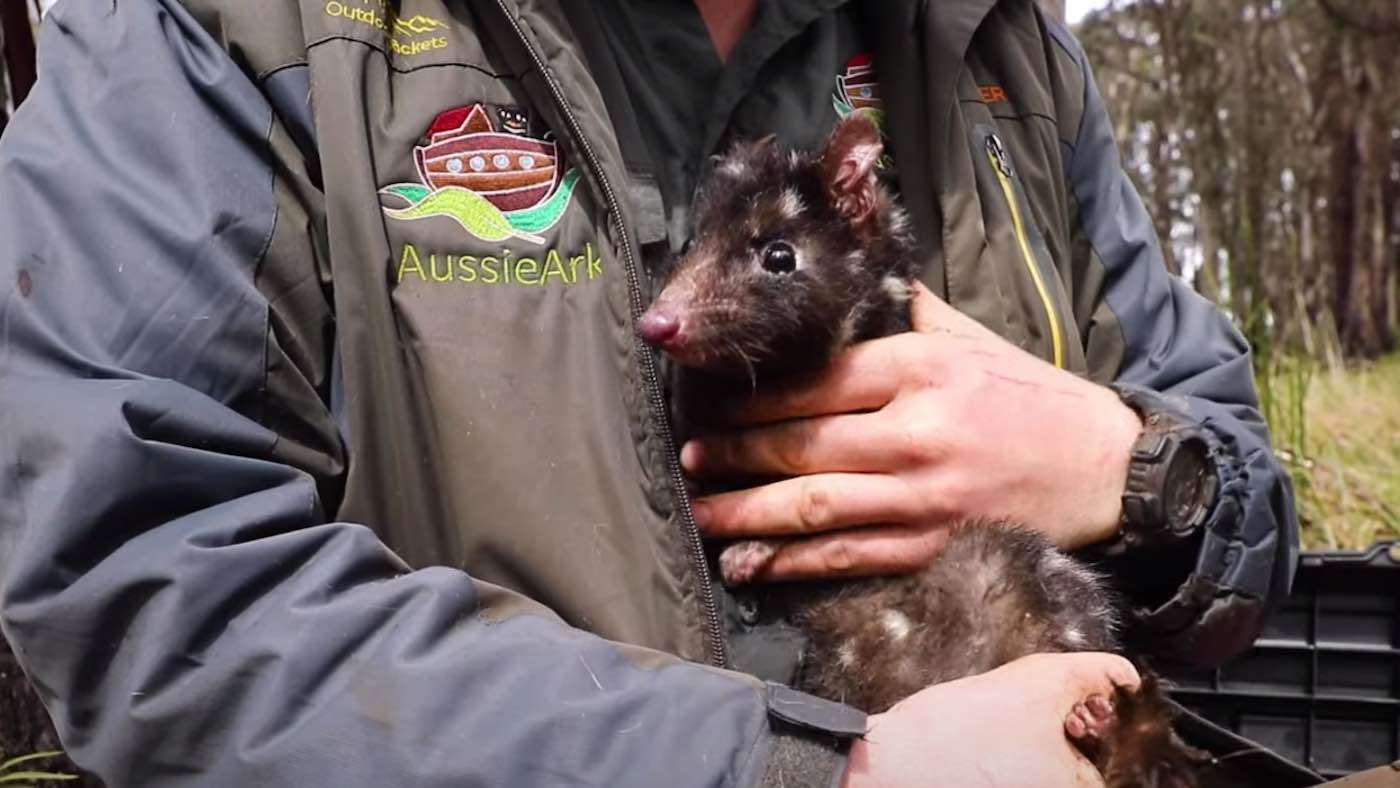Orphaned Cat Surprises New Caregivers When They Discovered She Has Two Noses -She's Called Nanny McPhee
A unique cat with a huge nose has stunned her new caregivers at an animal shelter, after it was discovered she actually has two noses.

Though it's still found in the wild on the island of Tasmania, an adorable animal that became extinct on the mainland of Australia in the 60s is now springing back to life in the outback-with 63 babies born in the wild this mating season alone.
It's the ultimate sign of success, resilience and hope-that eastern quolls, a native marsupial predator that was once gone from the mainland, can have a baby boom like this in Barrington Wildlife Sanctuary, where they're protected from threats.
It's all down to the team at Aussie Ark, an organization that like the prophet whose name and deeds put the theme to theirs, is helping the most endangered of Australian animals recover from the brink.
"This quoll baby boom is truly incredible!" said Dean Reid, Aussie Ark Operations Manager. "It's significant not only for our organization, but also Australia and the world."
"You need to remember that eastern quolls have been extinct on mainland Australia since 1967! So, the birth of these joeys feels like a modern Jurassic Park; bringing a species back from the brink, to reclaim the Australian bush."
Eastern quolls were part of the Australian landscape for millions of years, serving an important role as carnivores. But predation by feral animals as well as poisoning, trapping and land clearing resulted in its demise.
However a population remained on Tasmania, and the individuals bread in the 1,000 acre (400 hectare) Barrington Wildlife Sanctuary came from those island populations. They've now grown to number 250 quolls.
These animals, totally unique to Australia, breed in early winter and have a gestation period of 21 days. Females can raise up to six young, called "Joeys" the same as kangaroos. They remain suckling for about 10 weeks after which they detach and are nurtured by mom. Towards the end of November, when the quolls are between 18 to 20 weeks of age, they are weaned and become independent.
Aussie Ark Supervisor Tyler Gralton oversaw the pouch checks that revealed the record number of baby quolls.
"This is what our work is all about, this is the ultimate reward for all the years of care," Mr. Gralton said in a statement. "To open pouch after pouch and see so many joeys is a sight I'll never forget."
YOU MAY ALSO LIKE: Bandicoots Return to Australian National Park After Being Locally Extinct For More Than a Century
WS recently reported that the first-ever Manning River turtles bred in captivity were just released by Aussie Ark in the Manning River, the only place on Earth they are found.
Two years ago, these hard working conservationists reintroduced the Tasmanian devil to mainland Australia for the first time in over 3,000 years.
"This just goes to show that once you can get these animals back to where they belong in this 400 hectares of feral-free sanctuary, they can do all this hard work on their own," said Gralton.
WATCH the conservationists in action…
SHARE This Awesome Aussie Animal News With Your Friends…
Be the first to comment